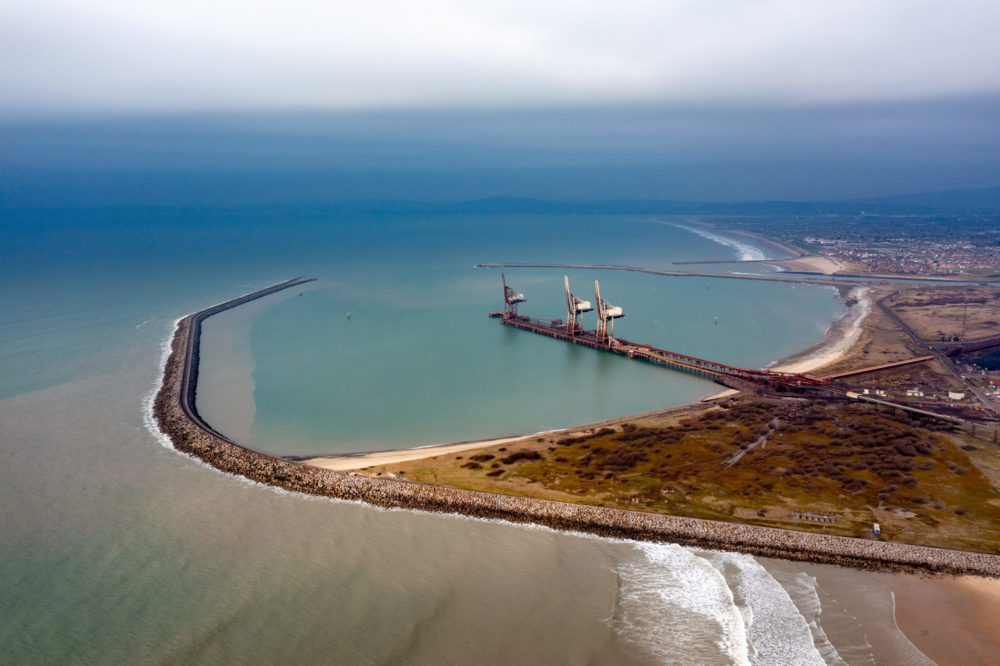Floating wind farm project off Port Talbot takes step forward

Martin Shipton
Energy Minister Andrew Bowie will today confirm a boost for the UK’s floating offshore wind industry as two port infrastructure projects – one in Wales – edge closer towards securing a share of up to £160m of UK Government funding.
Supporting Celtic Sea and Scottish floating wind development, Associated British Ports (ABP) Port Talbot and the Port of Cromarty Firth will be taken forward to undergo due diligence as part of the government’s Floating Offshore Wind Manufacturing Investment Scheme (FLOWMIS).
FLOWMIS – launched as part of the government’s Powering Up Britain plans in March 2023 – is seeking to secure the UK’s leadership in this emerging technology by providing funding to support private investment into port infrastructure projects that have the potential to support the scale of the pipeline.
The scheme will fund the basic infrastructure necessary to support the integration and assembly of wind turbines, for example by. ensuring port infrastructure is constructed, replaced or upgraded (such as the building of quays) to accommodate large components such as towers and blades as well as steel and concrete foundations and mooring cables required for floating offshore wind. It could also go towards the dredging of the seabed to make it deeper.
Due diligence
The due diligence process will include a subsidy control assessment by the Competition and Markets Authority. This assesses whether proposals for grant funding are compliant with the subsidy control rules laid out in the Subsidy Control Act 2022.
Offers of funding for the successful projects are expected to be made later in the year.
The UK is already a world leader in floating offshore wind, with one of the largest amounts of operational capacity anywhere in the world at 80 MW. The 50 MW Kincardine project is one of the largest floating wind farms in the world, and the 30 MW Hywind Scotland project was the world’s first floating wind farm.
The UK has the largest floating wind pipeline in the world, with over 25 GW already agreed, including through the ScotWind and Innovation and Targeted Oil & Gas (INTOG) leasing rounds run by Crown Estate Scotland.
In addition, The Crown Estate are moving forward with their plans to launch Offshore Wind Leasing Round 5, making available areas of seabed capable of supporting up to a further 4.5GW of floating wind capacity in the Celtic Sea.
Crown Estate
The UK Government is working with The Crown Estate to bring forward additional floating wind in the Celtic Sea through the 2030s, which could see an extra 12GW of generation deployed.
Welsh Secretary David TC Davies said: “Floating offshore wind is crucial to the UK’s future energy plans and its potential development off the coast of south Wales is fantastic news as we look to create jobs and growth in this sector.
“It is also welcome news for the Port Talbot area where the UK Government is investing in Tata Steel’s transition to greener steelmaking. As well as ensuring thousands of steelmaking jobs will remain in Wales, we want to create even more opportunities for workers affected.
“The Celtic Freeport development promises to create 16,000 jobs and FLOWMIS moving a step closer shows we are backing south Wales to be at the forefront of the industries of the future.”
Ambition
Minister for Nuclear and Renewables Andrew Bowie said: “We are world leaders in offshore wind and our ambitions for floating offshore wind are no different, with the UK already home to the world’s first floating wind farm and largest floating offshore wind pipeline.
“The development of the Celtic Sea and the Scottish marine area will put the UK in a strong position to support floating offshore wind deployment, delivering on our ambitions for up to 5GW by 2030 and greater deployment beyond.
“FLOWMIS will ensure we continue to be at the forefront of this new technology and today’s progress signals our continued efforts across the renewables sector to support jobs, bring down bills in the long-term and provide cheaper, more secure energy for Britain.”
Under the devolution settlement, the UK Government has responsibility for offshore renewable energy.
Support our Nation today
For the price of a cup of coffee a month you can help us create an independent, not-for-profit, national news service for the people of Wales, by the people of Wales.






